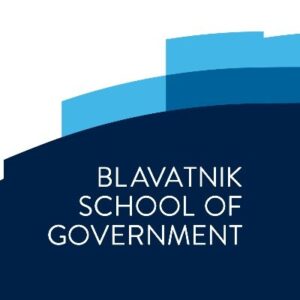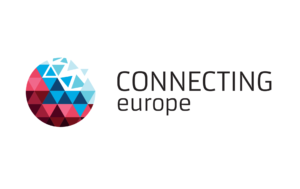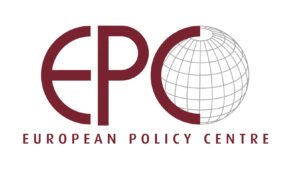past events
2025
January 21-22, Conference on the Impact of AI on Governance in Latin America, Africa, and Asia-Pacific, Rome
January 21, 9:00 – 17:00
January 22, 9:30 – 17:30
The Impact of AI on Governance in Latin America, Africa, and Asia-Pacific: Highlights, Challenges, and Strategies Going Forward
About
The Conference “The Impact of AI on Governance in Latin America, Africa, and Asia-Pacific: Highlights, Challenges, and Strategies Going Forward” was held at the Curia Generalizia della Compagnia di Gesù in Rome from 21 to 22 January 2025. Organized by the Global Initiative for the Digital Empowerment (GIDE) in consultation with the Vatican’s Dicastery for Culture and Education, we convened a select and diverse group of experts from technical, policy, regulatory, and other relevant fields to identify and discuss emerging trends and challenges related to AI’s impact on governance in the global South. It focused on developing practical strategies GIDE, its members and their networks can use to tackle these issues effectively, both in the short and long term.
With many AI conferences worldwide, GIDE aimed to create one that stood out—focused on active participation and solution-driven discussions. The conference was structured to foster meaningful engagement. It comprised seven sessions, each featuring one-hour expert presentations, 25-minute breakout discussions to encourage in-depth dialogue, and 30-minute interactive Q&A sessions to facilitate engagement between speakers and participants. This approach ensured meaningful exploration of covered topics and active contributions from all attendees.
Action points that emerged at the conference included:
Bottom-up approaches involving a coalition of willing countries, civil society, and universities can focus on initiatives to build a lattice across the global south of practical AI deployments that meet local needs and build local capabilities.
Leverage regional strengths, based upon existing work of GIDE members and conference participants in Latin America (Argentina, Chile, México, and Colombia) and Africa (African Union, Nigeria, Kenya, Rwanda, and Egypt) to identify areas where AI is being usefully adopted and promoted, as well as other current challenges and regulatory approaches.
Engage youth in a participatory process of building new narratives on digital governance: A participatory process involving people from different backgrounds and continents is needed to create narratives around AI governance. This process should focus on youth in the policy strategy design.
Consider the role of educational institutions: With the participants in the conference representing an extensive network of schools and universities, there is an opportunity to gather the opinions of youth in Latin America, Africa and Asia, ensuring diverse voices help shape AI governance.
Develop a new digital social compact: AI is just the latest of 100 years of technologies that have accelerated and expanded human interaction (and, in the case of AI, human-to-human artefact interaction). In that sense, these speakers felt we should seek to expound on the principles and outcomes we want to see achieved throughout this ongoing socio-technological trend. Some members proposed drawing on the education and research networks levers to engage people, especially youth, in the global south, as to what those principles and outcomes should be. This could help inform a new digital social compact and serve as a basis for discussion with governments and the tech industry.
Speakers and Participants
Alberto Carrara, Dean, Pontifical Atheneum Regina Apostolorum (In person)
Alejandro Pisanty, Professor, National Autonomous University of Mexico (In person)
Ángel González Ferrer, Director, Centre for Digital Culture, Vatican (In person)
Anne Rachel Inne, Regional lead, GIDE Africa (In person)
Armando Guio, Executive Director, Global Network of Internet and Society Centers (Remote)
Brogan Todd, Director of Campaigns and Organising, ITUC (Remote)
David Hidalgo, Journalist and Director, OjoPúblico (In person)
Debora Tonelli, Georgetown University Representative in Rome (In person)
Dennis Snower, Co-chair, Global Initiative for Digital Empowerment (In person)
Desire Miloshevic Evans, Former Special Advisor to the Chair of the IGF Multi-stakeholder Advisory Group (Remote)
Diego López González, Digital and AI policy, ITUC (Remote)
Dolores Sánchez Galera, Senior Research Advisor, Dicastery for Promoting Human Development (In person)
Emilce Cuda, Secretary of the Pontifical Commission for Latin America, Holy See (In person)
Gregory Arokiaswamy, Superior, International Roman Scholasticate (In person)
Hildegunn Kyvik Nordas, Senior Associate, Council on Economic Policies (Remote)
James Oyange, Organiser, African Content Moderators (Remote)
Javier Ruiz-Díaz, Senior Advisor, Consumer International (In person)
John Dardis, General Counsellor for Discernment and Apostolic Planning, Jesuits Global (In person)
Juan David Gutiérrez, Professor, Universidad de los Andes, Colombia (Remote)
Julia Pomares, Regional Lead, GIDE LATAM (In person)
Katryna Dow, CEO, Meeco (In person)
Kauna Malgwi, Nigerian Lead, Content Moderator Union (Remote)
Kholofelo Kugler, Counsel, Advisory Centre on WTO Law (Remote)
Laura Zommer, Executive Director, Chequeado (Remote)
Levi Checketts, Professor of Religion and Philosophy, Hong Kong Baptist University (Remote)
Loreto Bravo, Director, Data Science Institute, Universidad del Desarrollo (Remote)
Luca Tartaglia, IT Manager, Sovereign Military Hospitaller Order of St. John of Jerusalem of Rhodes and of Malta (In person)
Lourdes Spossito, Vatican Fellow, Pontificia Comisión para America Latican (In person)
Marco Carlo Passarotti, Professor, Catholic University of the Sacred Heart (Remote)
Mathieu Guillermin, Professor, Lyon Catholic University (Remote)
Matteo Zangheri, PhD student on AI and ethics (In person)
Mophat Okinyi, Founder and CEO, Techworker Community Africa (Remote)
Nick Thorne, Former UK Ambassador to the UN (In person)
Oliver Galea, Segretario Generale Fondazione Centesimus Annus – Pro Pontifice (In person)
Pablo Hinojosa, Senior Director, Engagement, APNIC (In person)
Paul Grainger, Co-Director, Centre for Education and Work, UCL Institute of Education (In person)
Paul Tighe, Secretary of the Section of Culture of the Dicastery for Culture and Education (In person)
Paul Twomey, Co-chair, Global Initiative for Digital Empowerment (In person)
Ramiro Albrieu, Lead, Sur Futuro (Remote)
Richard Benjamins, Vice President and Co-founder, OdiseIA (Remote)
Robert James Boyles, Professor of Philosophy, De La Salle University (Remote)
Serena Montefusco, UNESCO Chair in Bioethics and Human Rights (In person)
Silvia Lanza Castelli, Professor-Researcher, Universidad Tecnológica Nacional (Remote)
Soledad Guilera, Director AI and Public Policy Program, Torcuatto Di Tella University (In person)
Vicente Arias, Associate, Global Initiative for Digital Empowerment (In person)
Viviana Siless, Founder, Quipu Bank and Full-time Professor and Researcher, Torcuatto Di Tella University
2024
May 6-7, Global Solutions Summit, Berlin
May 7, 15:00 – 16:00
Empowering Digital Citizens: Expert Agents to Protect Consumer Interests
About
This session analysed how expert representatives can help consumers protect their interests in digital interactions.
Over the past years, several policy and legislative developments have aimed at improving citizen’s digital experience. In G20 economies, this political thrust is encapsulated in the G20 New Delhi Leaders Declaration and Brazil’s presidency agenda priorities for the 2024 G20 process. Europe has taken the lead in developing human-centered digital governance frameworks. The Digital Services Act, Digital Markets Act, Digital Governance Act and Artificial Intelligence Act spearhead efforts to ensure citizens have greater control over their online experience.
While recognizing the above as important steps to empower citizens, this session dived into two issues that have received less attention from policymakers and lawmakers.
First, the extensive use of automation and algorithmic tools hinders individuals from knowing who processes information about them. These requests are almost incalculable. Most digital users do not even know how much information about them is used, stored, shared, sold, or bought. Nor do they know the number of companies that hold data about them. Secondly, even if they could reply to every data processing request, data aggregators do not have legal or economic incentives to change their data processing practices. Consumers lack the necessary market power and technical skills to demand it.
Against this backdrop, the session analysed a dual industry model of dedicated data repositories and the role of experts as consumer agents. It explored how expert agents can negotiate the terms of use of personal data on behalf of citizens and help improve their digital experience. Speakers discussed the social and economic benefits of these agents. The session analysed which existing technologies can support the work of data expert agents.
Speakers
Nico Aspinall, Founder and CEO, Nico Aspinall Consulting
Javier Ruiz, Senior Advisor, Consumers International
Paul Twomey, Co-chairman, The Global Initiative for Digital Empowerment
Katryna Dow, Founder & CEO, Meeco
Desiree Miloshevic Evans, Cooperation Working Group co-chair, RIPE (moderator)
Partners
May 6, 15:50 – 16:30
Ethical AI Governance: Fostering a Human-Centric Future
About
This event was curated with UNESCO. It discussed practical approaches to governing artificial intelligence (AI) that could inform policymakers and lawmakers on how to boost AI governance’s efficiency to face future challenges from AI.
Since late 2022, public attention on AI has skyrocketed. AI’s mass adoption has rarely been seen before. Existing governance frameworks have struggled to keep pace with the development rush of AI-powered tools. Some actors have deployed this technology in ways that are considered unethical. Regulatory gaps can be exploited by companies and governments that prioritise their interests over public welfare or human needs. To face the challenges of AI, countries, and international organisations have developed different governance strategies.
However, each of these strategies has challenges. Market-based approaches may favour the creation of monopolies. Non-binding ethical guidelines lack enforcement mechanisms. Risk-based approaches might be too rigid and not tech-neutral. Other solutions may be at odds with Human Rights and other civil liberties.
The need for practical governance ecosystems becomes urgent as AI technologies become embedded in everyday systems, critical infrastructure, and decision-making processes. The lack of national, regional, and global coordination exacerbates risks associated with misusing AI-powered tools. Each strategy can learn from the experiences and insights of others, leading to more effective approaches to AI governance.
Speakers shared how the approaches they endorse ensure a human-centred and ethical development and integration of AI in society. Speakers also discussed how better coordination among multiple stakeholders can help face the challenges of an increasingly polarised geopolitical arena and with actors with huge financial resources.
Speakers
Gabriela Ramos, Assistant Director-General for Social and Human Sciences, UNESCO
Paul Twomey, Co-chairman, Global Initiative for Digital Empowerment
Julia Pomares, Fellow, Global Initiative for Digital Empowerment (Moderator)
Partners
May 6, 12:30 – 13:15
Using Standards to Build Core Values into the Online Ecosystem
About
This invitation only and closed-doors session analysed how technical standards can integrate core social values into the digital ecosystem.
Over the last 24 months, most countries and international organisations have developed policy guidelines, legal frameworks, and ethical strategies to deal with challenges of the digital economy. Most approaches aim at empowering digital citizens and improving their digital experience by giving them greater control over data about them.
However, to date, many challenges remain mostly unresolved. Not only is there a growing sense of disempowerment among citizens, minors are increasingly more vulnerable to online threats, and disinformation and misinformation campaigns have skyrocketed with the massive adoption of generative AI-powered tools. In short, these initiatives have struggled to keep pace with the challenges they aim to address.
Moreover, it is challenging to develop practical solutions for protecting children and their data online. These solutions must clearly show factual content and ensure built-in ethics in software and AI while preserving individual agency and privacy. These aims are often portrayed as conflicting, so providing a standards governance framework supported by practical tools will be tremendously impactful.
This session explored how internationally agreed technical standards could be used to address some of the most eroding aspects of modern digital life. It brought together several groups who are using standards and ethical development approaches to give organisations and Internet users confidence that core positive values are being embedded and defended in online content.
Speakers discussed strategies to use technical standards to embed human-centred values into the digital economy.
2023
May 15-16, Global Solutions Summit, Berlin
May 15, 16:00 – 16:45
Empowering Digital Citizens: How can we make this work?
About
This session took place during the second day of the 2023 Global Solutions Summit in Berlin, Germany. It was supported by the proposals from the report Empowering Digital Citizens: Making Humane Markets Work in the Digital Age, which brought together stakeholders from diverse backgrounds to discuss practical steps for implementing a human-centred data governance framework. The discussion targeted the European digital ecosystem as a potential landing spot for implementing GIDE’s policy proposals.
Key topics included legal rules, economic principles, mechanisms for representation, oversight, and control, and how these discussions inform and shape potential technological architectures and governance systems.
The discussions during this session were crucial in informing and shaping the 2023 and 2024 European advocacy programs at GIDE.
Speakers
Nico Aspinall, Founder and CEO, Nico Aspinall Consulting
Professor Syed Munir Khasru, Chairman, The Institute for Policy, Advocacy, and Governance (IPAG)
Professor Fen Osler Hampson, Chancellor’s Professor and Professor of International Affairs at Carleton University, Canada.
Hildegunn Kyvik Nordås, Senior Associate, Council on Economic Policies and research professor at the Norwegian Institute of International Affairs
Sal Malik, Senior Sales Engineer, Seal Storage Technology.
Paul Nemitz, Principal Adviser on Justice Policy, European Commission.
Roxana Radu, Departmental Lecturer in Technology and Public Policy, University of Oxford.
Michaela Regneri, Managing Director, House of Computing and Data, Hamburg University
Jamie Saunders, Director, Aston Sounders Limited.
Alpesh Shah, Senior Director of Global Business Strategy & Intelligence, IEEE.
Martin Wimmer, CDO, German Federal Ministry for Economic Cooperation and Development.
Partners
January 23-24, Summit, Blavatnik School of Government, University of Oxford
January 23-24
The Foundation of Values and Value in the 21st Century
About
On the 23rd and 24th of January, 2023, approximately 130 academics, business leaders, policymakers, and students convened in the Blavatnik School of Government, University of Oxford, UK, for a unique event. The summit’s aim was to discuss the role of values and value in formulating business practice and public policy in the 21st century.
The Summit was organised by the Blavatnik School of Government, University of Oxford, in conjunction with the Enacting Purpose Initiative at Saïd Business School, University of Oxford, Fraunhofer IMW, Global Solutions Initiative, the New Institute and the Global Initiative for Digital Empowerment, and the Oxford Internet Institute.
The Summit sought to reaffirm the fundamental importance of moral values in human life and explore their significance in shaping policy and business decisions. Over 20 GIDE members actively engaged in these discussions, leading to practical policy recommendations grounded in GIDE’s proposals.
Partners
2022
October 21, Policy Roundtable
October 21, 12:00-13:30
Let's use offline rules online: High level policy discussion on the future of digital governance
About
Despite the promises of digitalisation and interconnectivity, the Digital Age has also brought numerous policy challenges to make the online environment safe. For example, the proliferation of disinformation campaigns and the use of hybrid tactics to influence democratic processes, or the use of artificial intelligence to profile individuals online and modify their behaviour have made the EU react with a series of policy proposals to mitigate online risks, guarantee safety and cybersecurity, and protect digital rights.
To stimulate policy debate in these critical areas, this policy roundtable launched a series of presentations and discussions around the proposals of the report Empowering Digital Citizens: Making Humane Markets Work in the Digital Age with the Brussels Policy Community. Attendees included European Commission and European Data Protection Supervisor members, policy experts, economists, digital governance experts, researchers, civil society advocates, and journalists.
Participants discussed the creation of a human-centered regime for digital governance in Europe, its differences from existing models of governance, and the means of implementation, drawing from the report’s policy recommendations.
Schedule
10:00-10:15 Welcome remarks
10:15-10:40 Presentation of the report “Empowering Digital Citizens: Making Humane
Markets Work in the Digital Age”
Paul Twomey, Initiative Director, Digital Governance, The New Institute
Dennis Snower, President, Global Solutions Initiative
10:40-11:25 Panel discussion
11:25-11:30 Closing and conclusions
Partners
July 1-3, Hamburg, Germany
October 21, 12:00-13:30
The Search for a new Social Contract
About
The Internet’s long-standing benefits and the liberal ideals that govern it are currently threatened by actors aiming to exert greater control over the network and its future development. There is an urgent need to empower digital society to protect and perpetuate these values. This empowerment must adhere to the principles of the current regime and must be transparent and free from hidden agendas.
The increasing international presence and influence of authoritarian governments in the Internet Governance fora have raised significant concerns among various stakeholders. Since 2012, actors who don’t ascribe to liberal values have pushed forward rules and policies that threaten a decentralised, neutral, and open Internet.
To address these challenges, the Global Initiative for Digital Empowerment hosted a three-day workshop, during which 15 participants from five continents discussed a comprehensive package of tools designed to help build local communities’ Internet architectures that leverage the benefits of open, multi-stakeholder governance across Africa, Latin America, and Southeast Asia.
Participants discussed a specific fear related to the power these totalitarian actors can wield in various areas of governance. Participants focused on the influence of these actors over less developed countries and international bodies such as the ITU and the WTO.
These pressing issues necessitate what participants define as a new social contract, urging a diverse range of interdisciplinary and trans-sectoral stakeholders from around the globe to rise to the challenge of protecting and promoting the liberal democratic values that underpin the Internet.









